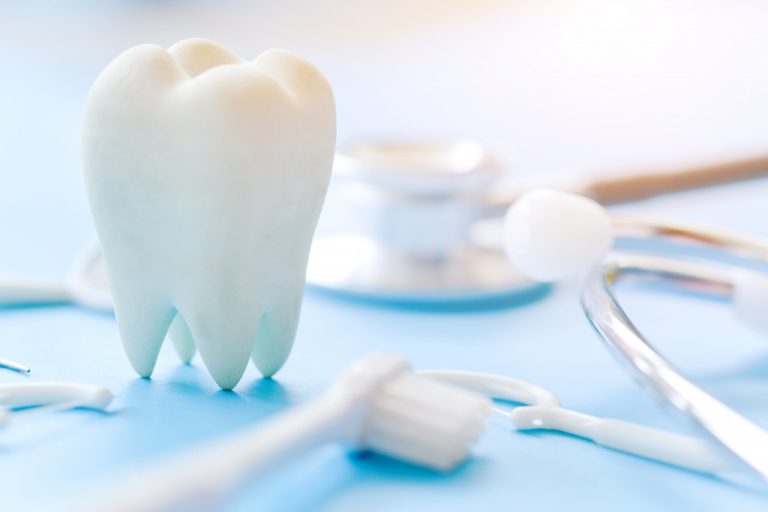The removal of a tooth, also known as tooth extraction, is a common procedure, particularly for adults. Dentists extract the tooth even though it’s permanent if no other treatment can save it anymore. In most cases, tooth extraction is required due to the following reasons:
- Tooth decay or infection
- Damage caused by trauma
- Gum Disease
- Crowded teeth
Performing Tooth Extraction
The steps are simple. First, you need to set an appointment with your dentist or dental surgeon. During the procedure, the dentist will inject you with anesthesia to help manage the pain. The anesthesia numbs that area to be treated so you will not feel any pain. However, you will still be aware of what’s happening around you.
If the patient is a child or needs two tooth extraction procedures, they might receive a more potent anesthetic. It means that the dentist might put the patient to sleep to ensure an uninterrupted operation.
For basic extraction, the dentist will use a tool called the elevator to loosen the tooth. Once it’s loose, the dentist will extract the tooth with dental forceps.
Removing Molars or Impacted Teeth
Tooth surgery is also necessary if you have an impacted tooth or a molar. The procedure for this surgery is quite different. Here, the dentist needs to make an incision to cut the gum, exposing the bone tissues that protect the tooth. And with the use of forceps, the dentist will rock the tooth gently until it splits off.
The dentists should be able to extract the tooth at this point. But if the tooth is tough to remove, it will be broken down into tiny pieces. After the removal, a blood clot will form in the site. It will then be covered with a gauze pad to avoid bleeding. If needed, you might receive stitches as well.
What To Do After The Procedure
Take recommended pain medications.
You will most likely feel pain and discomfort after the procedure. It typically happens once the anesthesia wears off, so make sure to take the pain medication prescribed by your doctor. Do not skip your schedules and take them on time.
Take plenty of rest.
Adequate rest is vital for a fast recovery. And since your mouth will be in pain after the procedure, it would b best to take some time off from work and other activities. After the extraction, ensure to head straight home and rest.
Eat soft foods only.
Your jawbones will be left exposed after the extraction. As a result, blood will come out of the extraction site until a clot is formed. To avoid complications, it’s recommended to eat soft foods only after tooth extraction. If excessive bleeding continues, call the dental office immediately.
Continue oral care.
Even though the treated site is painful, continue brushing and flossing your teeth. However, you can avoid the extraction site until it’s no longer painful.
Follow your doctors advise
Lastly, make sure to follow your dentist’s advice. In general, you will be asked to leave the gauze pad for at least 4 hours, elevate your head with pillows when sleeping, and apply an ice pack.
What To Avoid

There are several things you can’t do after tooth extraction. Avoiding these things will ensure a safe and faster recovery. Here are the things to avoid after dental extraction:
- Performing extreme physical activities (going to the gym, lifting, etc.)
- Do not smoke or drink alcohol.
- Avoid using straw and spitting.
- Don’t eat hard-to-chew foods.
- Avoid hot drinks or food until the anesthesia wears off.
- Do not touch the extraction site.
- Don’t ignore severe pain. Call your dentist if you still feel discomfort or excessive bleeding a day after the treatment.
Managing Pain and Discomfort
After the procedure, you will most likely feel pain, soreness, and discomfort. But that’s normal. You can also expect swelling in the face. Yet you don’t have to worry a lot because the prescribed medicines given by your dentists will help manage these symptoms. You might also need to take a few over-the-counter medications.
The pain and discomfort should be tolerable. However, if it becomes too much for you to manage, you might need to contact your dentist so that they can prescribe your other medication. If the pain worsens, call your doctor right away. Excessive pain often indicates infection. You need to have it checked by a professional to avoid complications.
Like other surgical procedures, dental extractions can cause complications as well. So it’s vital to follow your dentist’s instructions to ensure recovery. The healing period usually takes up to two weeks. After that, you will be able to go back to your routine and regular diet, given that you stick to your aftercare instructions.

